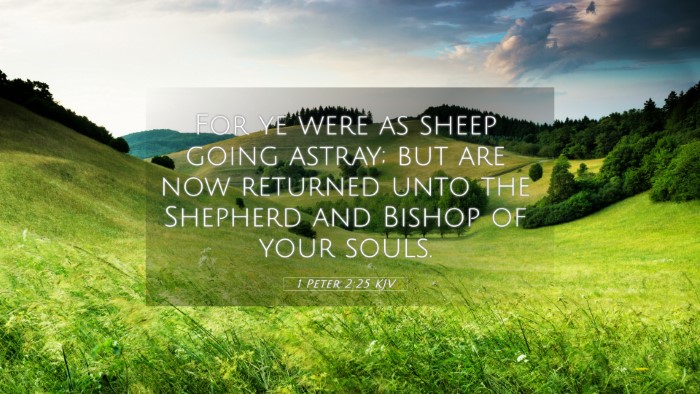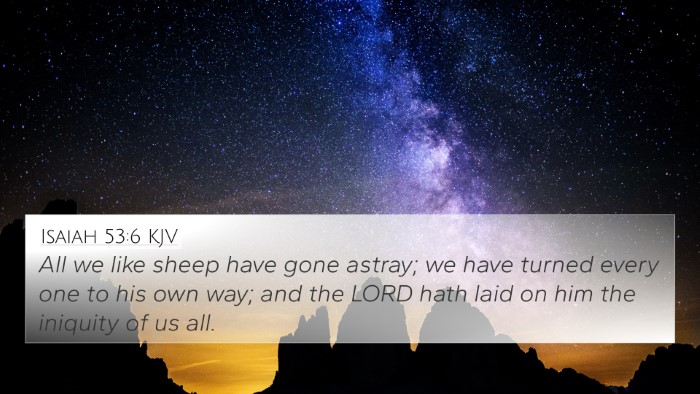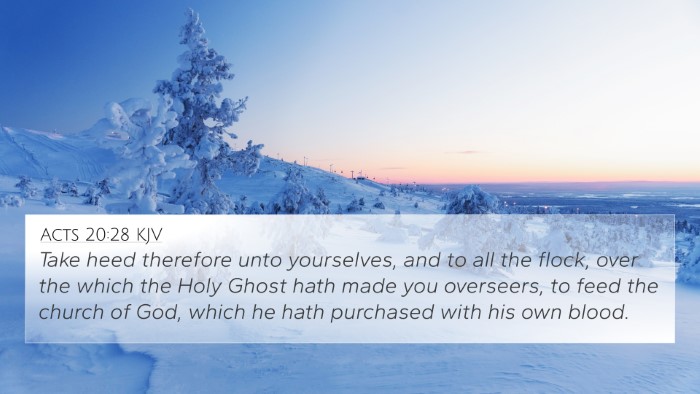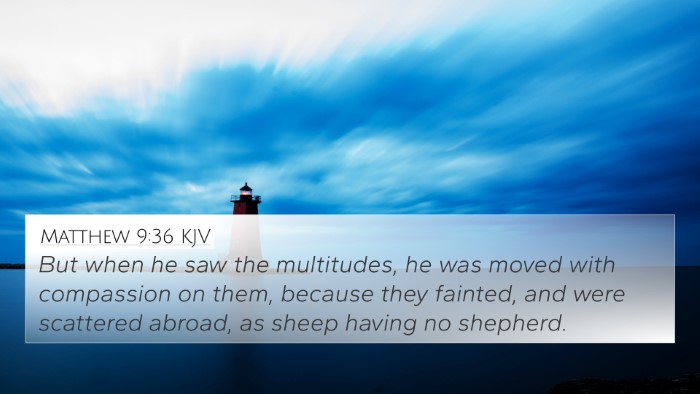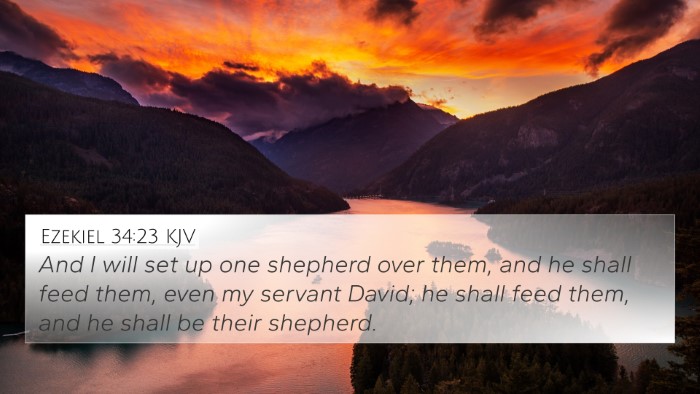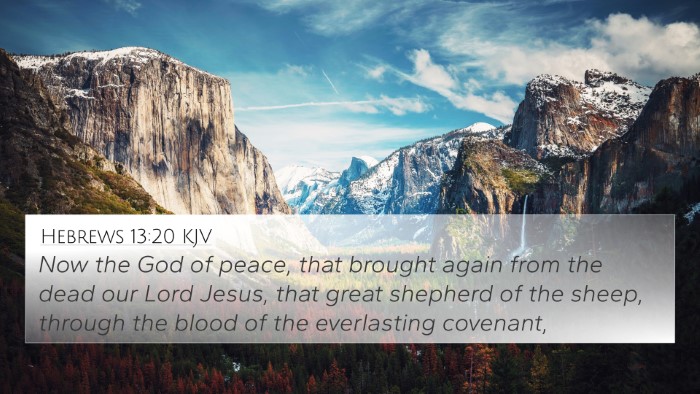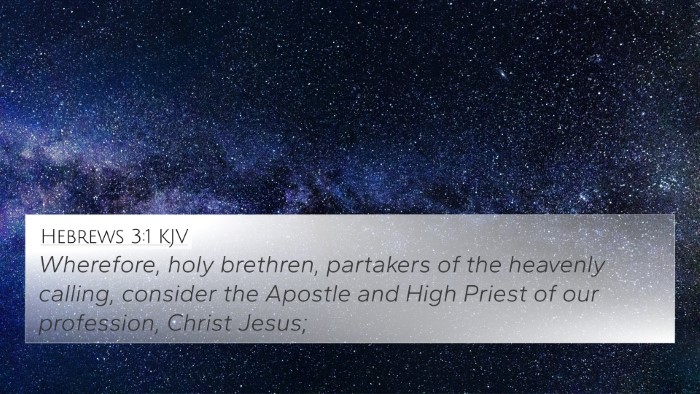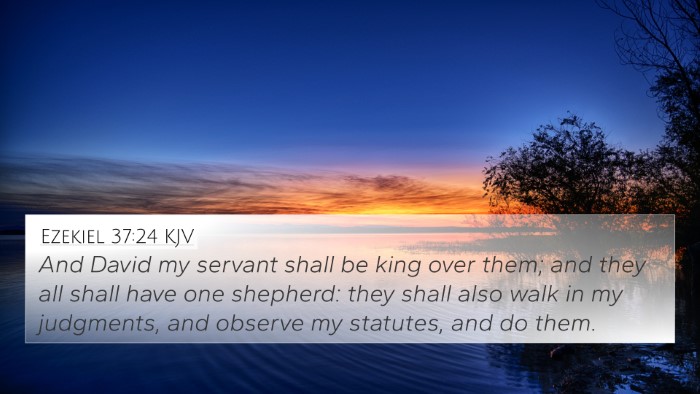Understanding 1 Peter 2:25
Bible Verse: 1 Peter 2:25 - "For you were like sheep going astray; but now have returned to the Shepherd and Overseer of your souls."
Verse Meaning and Commentary Summary
This verse captures the profound transformation in the lives of believers who have wandered away from God's path but have now been restored through Christ. Drawing insights from renowned public domain commentaries, we explore the implications and connections of this powerful verse.
Contextual Analysis
Matthew Henry emphasizes the imagery of sheep, highlighting the tendency of humanity to stray from the divine pathway. He points out that just as sheep are vulnerable and dependent, humans too, without the guidance of their Shepherd, can fall into error and sin.
Albert Barnes adds that the phrase “but now have returned” signifies a pivotal change in the believer's state. It indicates that through repentance and faith, believers re-align themselves with God's purposes.
Adam Clarke refers to Jesus as the "Shepherd and Overseer of souls," underscoring Christ’s protective and guiding role in the lives of the believers. This title alludes to the profound care that God provides, showcasing a relational aspect of faith.
Thematic Connections
1 Peter 2:25 establishes a connection with various biblical themes, including:
- Redemption: The theme of returning to God and being redeemed is prevalent throughout scripture.
- Spiritual Leadership: This verse reflects the necessity of having spiritual guides, likened to shepherds in pastoral care.
Bible Verse Cross-References
For deeper understanding and thematic continuity, the following Bible verses relate closely to 1 Peter 2:25:
- Isaiah 53:6 - "All we like sheep have gone astray; we have turned, every one, to his own way."
- John 10:11 - "I am the good shepherd. The good shepherd lays down his life for the sheep."
- Hebrews 13:20 - "Now may the God of peace who brought up our Lord Jesus from the dead, that great Shepherd of the sheep, through the blood of the everlasting covenant."
- Ezekiel 34:11-12 - "For thus says the Lord God: 'Indeed I Myself will search for My sheep and seek them out.'"
- 1 John 2:1 - "My little children, these things I write to you, so that you may not sin. And if anyone sins, we have an Advocate with the Father, Jesus Christ the righteous."
- Matthew 18:12 - "What do you think? If a man has a hundred sheep, and one of them goes astray, does he not leave the ninety-nine and go to the mountains to seek the one that is straying?"
- Psalm 23:1 - "The Lord is my shepherd; I shall not want."
Connections Between Bible Verses
As studied through comparative Bible verse analysis, the verse exemplifies a rich inter-Biblical dialogue. For instance, the connection with Isaiah 53:6 frames humanity's common plight of wandering from the truth and needing restoration, set against the backdrop of Christ’s redemptive work.
When considering John 10:11 alongside 1 Peter 2:25, it becomes evident that Jesus embodies the role of a shepherd who not only guides but also sacrifices for His sheep, reaffirming His commitment to lead them away from straying.
Tools for Bible Cross-Referencing
Upon examining 1 Peter 2:25, one may utilize tools for Bible cross-referencing, such as:
- Bible Concordance: A critical resource for finding specific words and their corresponding verses.
- Bible Cross-Reference Guide: Helps in discovering related verses and themes, enriching personal study and understanding.
- Cross-Reference Bible Study: Employs systematic methods to connect different scriptures.
Application and Reflection
In summary, 1 Peter 2:25 serves as a profound reminder of our need for divine guidance and the joy of returning to our Shepherd. Believers are encouraged to actively engage in cross-referencing biblical texts, fostering a deeper understanding and appreciation for the narrative of redemption that permeates the Bible.
Through the act of cross-referencing, one can identify connections between verses, enhancing one's spiritual growth and fostering a more profound relationship with God.

